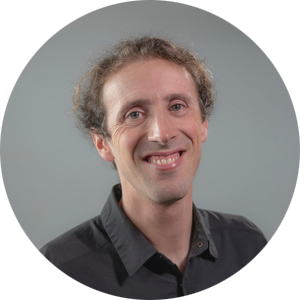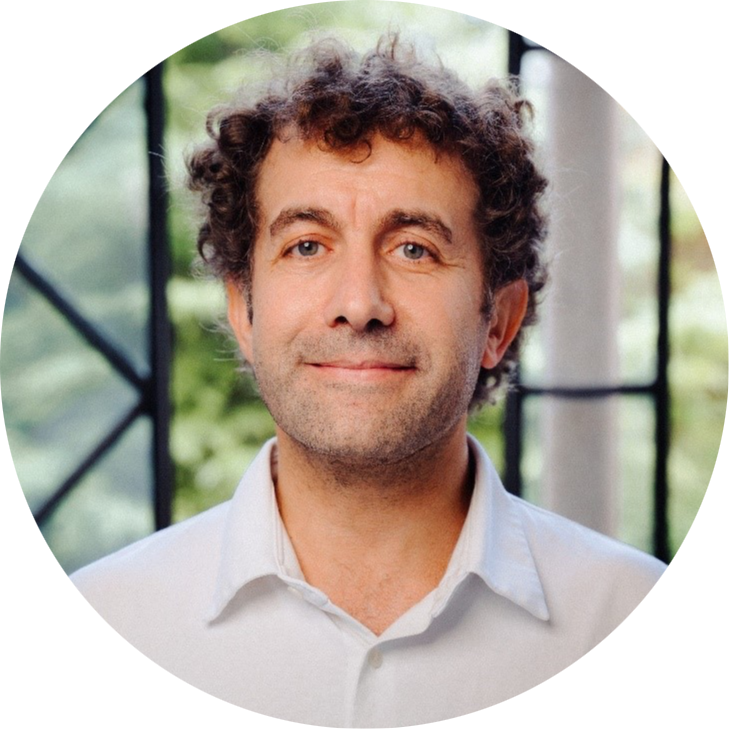Keynote speakers
Gaël Varoquaux 
Research director of the SODA team at Inria, and director of the scikit-learn operations at Inria foundation
From prediction to the clinics: a data scientist's viewpoint
Abstract. How do we, machine-learning researchers, insert our progress into a broad healthcare picture? It takes more then prediction. Our models are often used in a decision making setting, with interventions in mind. Their evaluation then call for causal thinking. More generally, evaluation is a bottleneck, and I will discuss various aspects of validating predictive clinical models, such as the gap between analytical and clinical validation, or how to assess the quality of probability classification.
Biography. Gaël Varoquaux is a research director working on data science at Inria (French computer science national research) where he leads the Soda team. Varoquaux's research covers fundamentals of artificial intelligence, statistical learning, natural language processing, causal inference, as well as applications to health, with a current focus on public health and epidemiology. He also creates technology: he co-funded scikit-learn, one of the reference machine-learning toolboxes, and helped build various central tools for data analysis in Python. Varoquaux has worked at UC Berkeley, McGill, and university of Florence. He did a PhD in quantum physics supervised by Alain Aspect and is a graduate from Ecole Normale Superieure, Paris.
Laure Fournier 
Radiologist, Hôpital Européen Georges Pompidou and INSERM
AI in clinical imaging: so near and yet so far
Abstract. AI applied to medical imaging has known important progress in the past 10 years. However, it now faces important challenges to implement it in a clinical workflow. Clinical challenges include identification of clinically relevant applications, and the clinical validation of the applications. Ethical challenges include explainability, communication with patients and correspondents, and the equality of representation in training populations of the algorithms. Finally, the field faces important economic challenges including sustainability and finding an economical model for the funding.
Biography. Dr Laure Fournier works as a Professor at the Hôpital Européen Georges Pompidou, in Paris, France. Her time is divided between clinical work on urogenital cancers, and imaging research in the Laboratoire de Recherche en Imagerie (INSERM U970). She works on functional imaging, radiomics and big data, to extract quantitative parameters from images reflecting tumour physiology and biology, more specifically to define response to therapy, particularly for targeted therapies requiring new response criteria. She organises the curriculum on Artificial Intelligence for French radiology residents. She is a member of the Scientific Committee of the DRIM France IA national image database and is a medical imaging chair in the PRAIRIE interdisciplinary AI institute. She has been involved in outreach activities including round tables with clinicians and policy makers, meetings and interviews with patients and general public on the subject of patient databases, radiomics and AI.
Karim Lekadir 
ICREA research professor, department of mathematics and computer science at the University of Barcelona
The whole picture: Building trustworthy AI in medical imaging from the ground up
Abstract. Every year, MIDL presents the latest in deep learning for medical imaging, introducing techniques that enhance data quality, improve model generalisability, reduce systematic biases, foster AI explainability, and ensure thorough validation. These innovations are essential for developing AI tools that are robust, safe, and ethical. In this talk, I will argue that while technical advancements form a critical component, they are only one piece of the puzzle to build trust in AI. I will present best practices derived from international experiences to operationalise trustworthy AI in practice. Covering the entire AI lifecycle, I will highlight the importance of stakeholder engagement, diversity and inclusion, risk management, comprehensive validation and continuous monitoring.
Biography. Karim Lekadir is an ICREA Research Professor in the Department of Mathematics and Computer Science at the University of Barcelona. He obtained his PhD from Imperial College London and was a postdoctoral researcher at Stanford University. He investigates new data science techniques for trustworthy and ethical artificial intelligence in medicine. He has been PI in 12 EU-funded projects, coordinated 5 Horizon projects, and was awarded an ERC Consolidator grant to investigate new AI techniques tailored to resource-limited settings. In addition, Karim is General Chair for the MICCAI 2024 Conference (Medical Image Computing and Computer-Assisted Intervention) which for the first time will take place in Africa – in Marrakesh, Morocco.